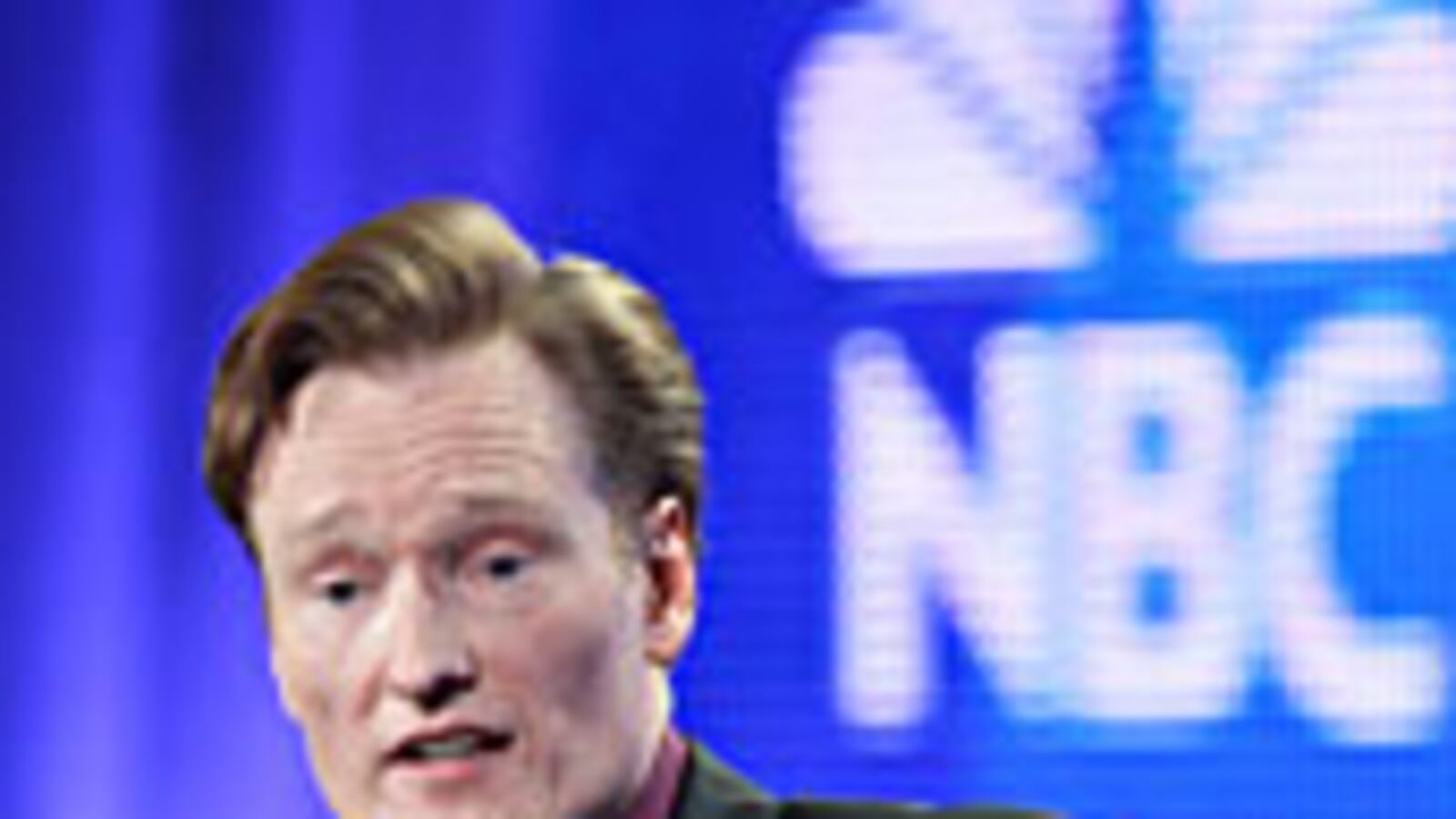
When it gets parched in Los Angeles the weather service issues a “red-flag” warning to indicate that the risk of fire is high. A red flag is flying over the entertainment industry at this point, but nowhere is it more visible than atop the black tower at NBC Universal, where the television network and the film studio have been very dry indeed.
Silverman remains on the job despite NBC’s continued failure. According to sources, he just returned after being absent for four weeks, and is widely perceived to be lining up his next gig.
Those were some lousy second-quarter numbers that NBC Universal reported last Friday. With parent company GE under pressure with its own lousy numbers, there has been lots of speculation in the media and in Hollywood commissaries about possible shakeups at the company. Two recent stories in the New York Post about Universal in particular have led some high-level insiders to wonder whether their boss, NBC Universal Chairman Jeff Zucker, could have planted some rumors himself—presumably to make it clear to his bosses at GE that those who deserve to walk the plank (not him, mind you) are trussed and ready.
Similar speculation about Zucker and the Post has sloshed around in the blogosphere before. An NBC Universal spokeswoman dismisses the idea that Zucker had a hand in the reports as “patently absurd.” Based on my experience with my own sources, guesswork about who is behind a story is often wrong. But the internal speculation reveals a toxicity in the environment at the company these days. And a top NBC Uni executive observes with some bitterness that the bosses haven’t done much to quell these reports. “They allow rumors to gestate,” he says. And to him, some of these recent Post stories seem to follow a pattern.
Specifically, there was the case of Beth Comstock, formerly the head of NBC Universal digital operations. In April 2007, the Post quoted sources close to NBC saying that Comstock was “quickly losing credibility and respect within the organization.” In September 2007, the paper was back with a report that Comstock’s tenure at the network was “coming to an end.” Her departure wasn’t announced until March 2008 but by the time she was moved out of the job, my insider says, “everybody knew she was totally compromised.”
That reminded me of another Post report from in November 2008 involving Katherine Pope, then president of the NBC Universal television-production studio. Much-criticized NBC Co-Chairman Ben Silverman wasn’t entirely to blame for the network’s lousy performance, according to a network source, because Pope “took her eye off the ball.” So somehow the executive who ran the production studio was 1) newsworthy) and 2) more culpable than Silverman, who had told his boss’ boss—GE Chairman and CEO Jeff Immelt—to judge him on the performance of such shows as Knight Rider and Kath & Kim—and failed according to his own criteria.
This time, matters moved more expeditiously; Pope was out of her job by December and quickly snapped up by Peter Chernin, the outgoing No. 2 man at NewsCorp, for a top job at his new production company.
Silverman remains on the job despite NBC’s continued failure. According to sources, he just returned after being absent for four weeks, and is widely perceived to be lining up his next gig. Perhaps he’ll wait, as one associate speculates, for Jay Leno to make his prime-time debut in September, assuming that early ratings will be good enough—as viewers sample the show—to allow NBC to declare victory, providing for a somewhat graceful exit.
But the focus has shifted, for the moment, from the network to the film studio, Universal. In Hollywood, it is taken as a given that Universal Co-Chairmen Marc Shmuger and David Linde are in trouble. There’s no denying the studio has had a string of losers and Brüno’s sharp drop this past weekend is not going to help. “It’s a pretty epic bad run with no end in sight,” says a leading agent. That includes State of Play, Duplicity, Land of the Lost, and Public Enemies.
But if negative articles in the New York Post are a bad omen when it comes to NBC Universal, it might be worth noting that there hasn’t been a peep about the co-chairmen of the studio. The paper has weighed in twice lately on their boss, Universal Studios Chief Ron Meyer. Having been on the job for 15 years, Meyer is the longest-serving and best-liked of all the entertainment-company chairmen. Through multiple owner changes at Universal, he has shielded his staff from any number of irrational bosses and maintained strong relationships with talent (though what those are worth now, in this new world, is not clear).
Few in Hollywood can imagine that Meyer will actually be ushered out; the prevailing view is that every studio goes through bad spells. (Of course, the timing on this one is not great.) But recently, the Post has been back not once but twice with reports that Zucker is honing in on Meyer. First he dispatched his chief financial officer to keep tabs on studio operations. A second article said that while Meyer is unhappy because Zucker expects him to manage with fewer resources than his competitors, Zucker is “turning a deaf ear” and “just wants Meyer to fall in line.” Is it coincidence that just as Zucker’s scrutiny of Universal increases, the Post is on the case?
Certainly Zucker has lots to worry about. The studio does need to get out of its rut. And on the television side, Conan O’Brien is facing a resurgent David Letterman, and Zucker will really have some explaining to do if the numbers from Leno’s new prime-time show don’t hold. It might make you wonder why, if there are such big problems at NBC and Universal, the only person who doesn’t seem to be in the crosshairs is the one who oversees both operations.
Kim Masters covers the entertainment business for The Daily Beast. She is also the host of The Business, public radio's weekly program about the business of show business. She is also the author of The Keys to the Kingdom: The Rise of Michael Eisner and the Fall of Everybody Else.






